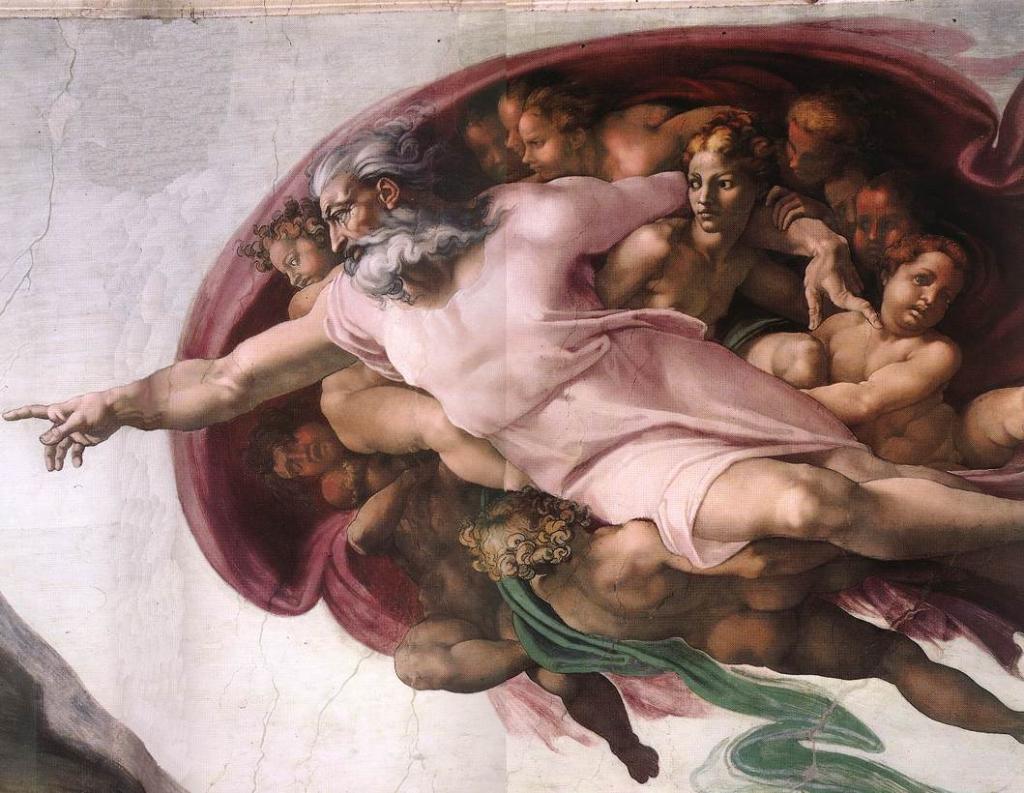
“God loves us whether we remain Christian or not.”
That’s a statement I made in a previous post, How Should a Christian Respond When a Friend Becomes Interested in Witchcraft and Magic?
In response to this, a reader wrote this to me:
This is why I love your writing. That said, a certain part got me curious. The idea of leaving Christianity, is like one saying “no” to God. Why does leaving Christianity automatically assume saying no to god? That seems a bit overstated. Perhaps moving to a more authentic expression of god? Or moving to a tradition where one more profoundly experiences god. But it doesn’t mean a rejection. Unless it is in the rejection of a particular expression of god. But we all do that, Christian and not. Like rejecting the fundamentalist god. Sometimes it’s a good thing.
I live in the American south — the Bible belt — where you can still hear earnest evangelical Christians say that a man with a pierced ear or a tattoo has “a rebellious spirit.” Never mind that in the 1860s this entire region had a “rebellious spirit” (and not in a good way!) — there is certainly a bias among many Christians, that a “rebellious spirit” is somehow, and always, anti-God.
And leaving church: well, that’s about as rebellious as you can get.
I think there’s an unfortunate theology behind this way of thinking. It’s an authoritarian theology — where God is understood primarily in terms of power which means that the appropriate human response to God is submission. Certainly there is language in the Bible and in Christian tradition to support such a way of thinking about God.
But is it the only way to think about God? No, thank heaven.
It’s All About the Image
A couple of weeks ago I wrote a post (Can Christians Use a Mantra?) in which I talk about how different ways of thinking about (“imaging”) God can have consequences in how we pray or even the shape of our belief. I think many Christians have this idea of God as a monolithic figure, that’s there’s only one way to think about, or imagine, God. But in fact we have as many different ways of thinking about God as there are ways to think about life. The sum of our thoughts, feelings, ideas, and concepts of God is what is called our “image of God.”
For some people, God is an angry judge, a being of power who demands total obedience and will punish all who disobey (even though, mercifully, he might spare those who place their faith in him).
For others, God is a distant figure, a capricious ruler who blesses some and ignores others, and who just might bless us — if not in this life, then in the next — if we conform to what our religion demands of us.
And then others may see in God a fountain of unending love and mercy, calling us into community with God and with one another, encouraging us to make loving choices and helping us to see that unloving choices are a dead end.
I’m sure there are many other ways of imaging God.
Back to the reader I quoted above, who asks, “Why does leaving Christianity automatically assume saying no to god?” Just to be clear, I don’t make that assumption. And I assume that those who do make that assumption tend to be working with an authoritarian or excessively wrathful image of God.
But my reader goes on to muse that leaving Christianity often amounts to letting go of a limited image of God:
Perhaps moving to a more authentic expression of god? Or moving to a tradition where one more profoundly experiences god. But it doesn’t mean a rejection. Unless it is in the rejection of a particular expression of god. But we all do that, Christian and not. Like rejecting the fundamentalist god. Sometimes it’s a good thing.
I think there’s a lot of truth here.
Limited Image = Limited Consciousness
I once studied with an elderly Baptist minister who had some interesting things to say about fundamentalism. “It’s a stage of consciousness,” he pointed out to me — a perspective that I found also in the writings of Ken Wilber or Don Beck. “Many people move through that stage of consciousness when they are young, maybe 13 or so. But others never seem to grow beyond it.”
In other words, an authoritarian image of God is consistent with an authoritarian understanding of morality or society, which can be appropriate for some children or even young teenagers. But just as children need to outgrow an authoritarian model of morality (moving from “I won’t do anything that Mommy says is wrong” to “I won’t do anything that my own conscience recognizes is wrong”), so we also need to outgrown an authoritarian image of God.
But some of us never do — and those are the fundamentalists or ultra-traditionalists (of any religion).
Just for the record: I think when we are involved in a healthy, open-hearted faith community, it is possible to move from a fundamentalist image of God to a more mystical or loving image of God, without having to leave church. But I understand that for many people, shifting out of a limited image of God to one that is more inclusive/loving/mystical might necessitate leaving church (at least for a while), or at least changing which church we participate in (see Rachel Held Evans’s Searching for Sunday for an example of someone in our time making the shift out of fundamentalism and into a more expansive expression of Christianity.
Let me finish by reiterating the statement that inspired my reader to comment in the first place:
“God loves us whether we remain Christian or not.”
But here’s what matters: do we love God enough to allow our image of God to keep growing and expanding, to become more inclusive, more compassionate, more loving, more just, and — most of all — more mystical?
That’s a question worth pondering!
Enjoy reading this blog?
Click here to become a patron.














